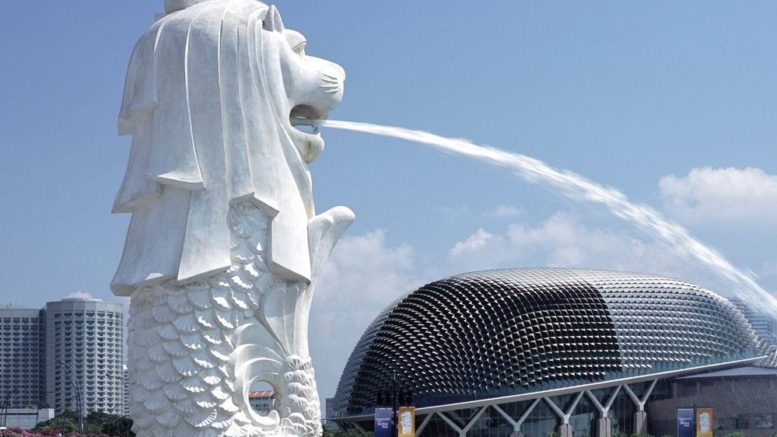Is raising taxes inevitable, in order to increase spending?
I refer to the article “As Singapore’s spending needs grow, raising taxes is inevitable: PM Lee” (Channel NewsAsia, Nov 19).
It states that “Singapore’s investments for the economy and infrastructure, as well as spending on social services and safety nets are all necessary, and a vote of confidence in Singapore’s future, said Prime Minister Lee Hsien Loong on Sunday (Nov 19).
But investments and social spending are costly, and the Government must make sure it can afford them, he said.
Speaking to about 2,000 activists at the PAP convention, Mr Lee said that while Singapore has enough revenue for this term of Government, spending has been going up and must rise further.
And as Singapore’s spending needs grow, he stressed that Finance Minister Heng Swee Keat was right when he said that raising taxes is not a matter of whether, but when.
“Well before the time comes, we have to plan ahead, explain to Singaporeans what the money is needed for, and show how it will benefit everyone, young and old,” he said.
Mr Lee added that Parliament will take a mid-term break after next year’s Budget.”
50 years of the Singapore Budget
In this connection, I added up the Budget surpluses/deficits from 1997 to 2016 using a chart in the Straits Times (5o years of the Singapore Budget).
Net Budget surpluses from 1997 to 2016 – $31.1b?
The total Budget surpluses and deficits were $44.5 and -$13.4 billion, respectively.
This means that the net Budget surpluses from 1997 to 2016 was $31.1 billion ($44.5 – $13.4).
Includes Transfers to Trust and Endowment Funds?
As these figures include Transfers to Trust and Endowment Funds which under IMF fiscal reporting guidelines should not be charged as one-time expenditures in the Budget – the Budget surpluses may actually be much higher.
FY2016 – Budget surplus $5.2 or $8.8b?
For example, if we add back the Trust and Endowment Funds of $3.6 billion – the Budget surplus would rise from $5.2 billion to $8.8 billion in FY2016.
Budge Cash Surplus from 2005 to 2014 – $190b?
According to the Department of Statistics’ Monthly Digest of Statistics – the total Budget Cash Surplus/Deficit (M130611 – Government Finance, Annual) from 2005 to 2014 was $190 billion (I added up the yearly figures).
So, if we follow the full IMF fiscal reporting guidelines – does it mean that our Budget Cash Surpluses from 2005 to 2014 was about a whopping $190 billion?
P.S. You may like to watch this 50 seconds video on the Budget surpluses
As to “He added that Singapore’s social resilience is also being strengthened, with Singapore’s annual spending on childcare doubling to S$1.7 billion. Demand for healthcare services is also rising sharply, and he noted that the healthcare system is being restructured, with more acute hospitals and community hospitals being built. The Government has also improved MediShield coverage, and is now working on ElderShield for long-term care.
“These will keep healthcare affordable to citizens, but healthcare spending by the state will go up”” – Singapore’s public healthcare spending as a percentage of GDP, at just about 2.5 per cent ($9.8 divided by $400 billion), is probably the lowest in the world.
From a cashflow perspective – the Government may still not be spending a single cent on healthcare, as total annual Medisave contributions plus the annual interest on total Medisave accounts’ balances may exceed total annual government spending on healthcare and withdrawals for medical expenses and insurance premiums.
“Mr Lee stressed that it will not be easy to upgrade the economy, create good jobs and fund the Government’s “ambitious plans”. And to implement these policies, the Government must get its politics right.
“The people must support the PAP, and most of all, they must trust the PAP,” he said. “They must know that the PAP cares about them, and is working to improve their lives.”
But he added that it is also important to make hard choices, take difficult decisions and be upfront about it with Singaporeans.
“Explain to them why we need to do it, and get their support,” he said. “Even if people may not like the specific policy, we must convince them that we are doing it with good intentions, and for good reasons.”
The PAP, he added, earned the people’s trust the hard way, and it must never take it for granted or fritter it away.
“The PAP has always been honest with Singaporeans,” he said. “We don’t just tell you what you want to hear. We level with you.
“Because we have been frank and honest, you know that the PAP means what it says, and delivers what it promises.””
What are your thoughts on the above?
Leong Sze Hian
